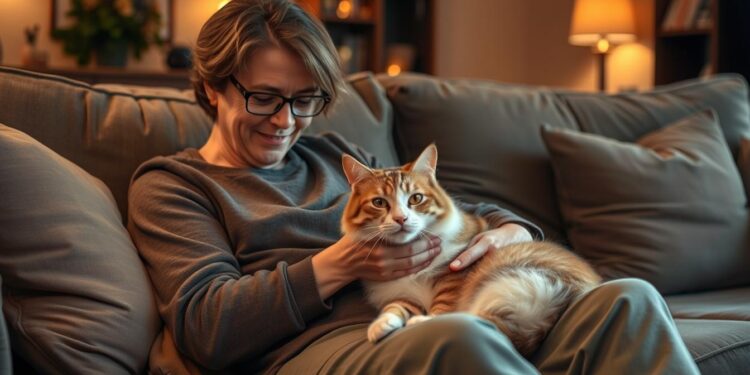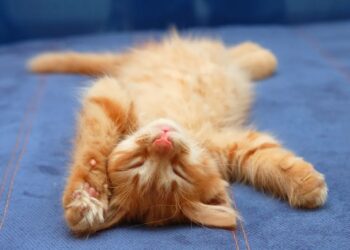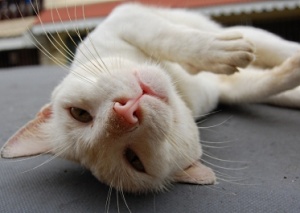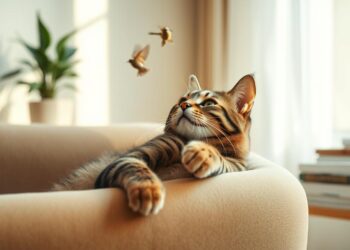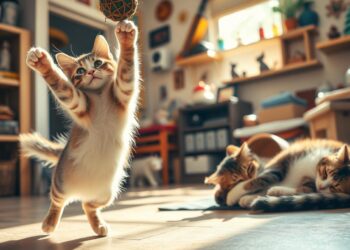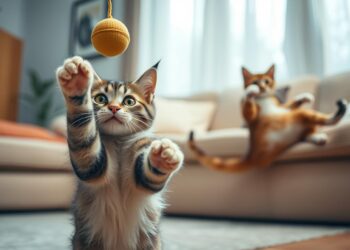Imagine being a self-proclaimed cat hater, only to have a sudden change of heart towards these feline creatures. For some, it’s a gradual process, while for others, it’s a swift transformation.
Unlike dogs, cats are often more discerning about their affection, making their eventual embrace all the more rewarding. As we explore the stories of those who’ve made this unexpected shift, we’ll uncover the reasons behind their newfound appreciation for feline companionship.
From the aloof to the affectionate, cats have a unique way of capturing our hearts. Let’s dive into the fascinating world of former cat skeptics turned feline fanatics and discover what sparked this transformation.
Common Reasons Behind Cat Aversion
For many, the initial dislike for cats stems from a mix of misconceptions and personal experiences. Understanding these reasons can provide insight into why some people may harbor a strong aversion to felines.
Misconceptions About Feline Independence
One common misconception is that cats are aloof and unfriendly. However, this independence is often misunderstood; cats simply have different ways of showing affection. Unlike dogs, cats are more subtle in their expressions of love and loyalty, which can be misinterpreted as being distant or cold.
Previous Negative Experiences with Unfriendly Cats
Some individuals may have had negative encounters with cats that were unfriendly or aggressive. These experiences can leave a lasting impression, making it challenging for people to warm up to cats in the future. It’s essential to recognize that a cat’s behavior is often a reflection of its environment and upbringing.
Allergies and Household Cleanliness Concerns
Allergies to cats and concerns about household cleanliness are also significant factors. Cat dander can trigger allergic reactions, and their grooming habits, while generally clean, can sometimes be perceived as unhygienic. Addressing these concerns through proper cat care and household management can help alleviate these issues.
By understanding and addressing these common reasons behind cat aversion, it’s possible for people to overcome their initial dislike and develop a more positive relationship with cats.
Turning Points: What Changes Cat Haters’ Minds
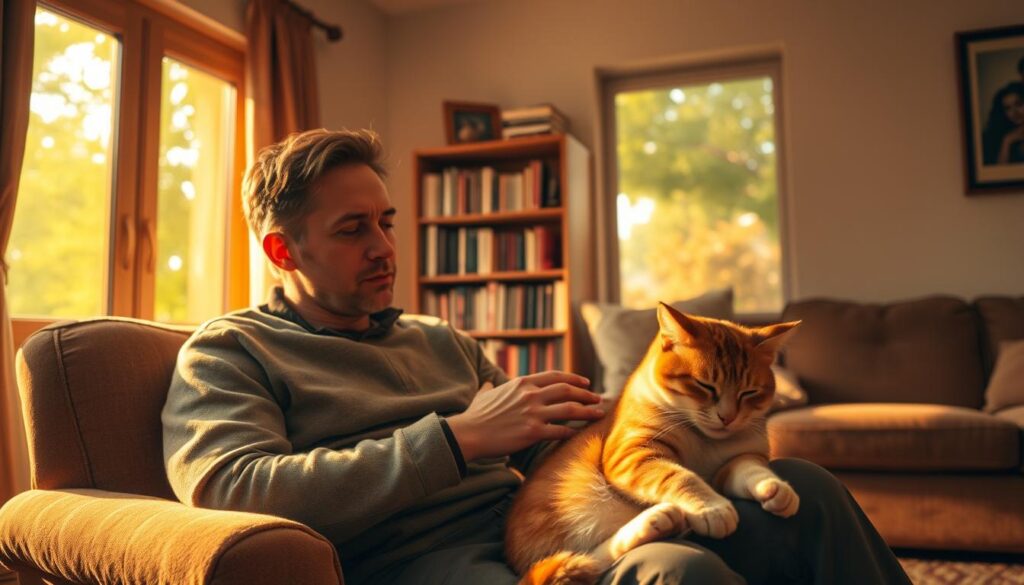
The path to loving cats is rarely straightforward, but several key events can trigger this transformation. For some, it’s an unexpected encounter with an affectionate feline that changes their perspective.
Unexpected Encounters with Affectionate Felines
A new study has confirmed that cats enjoy being around humans who don’t identify as “cat people.” This surprising finding highlights the potential for unexpected encounters to alter cat haters’ perceptions. When cat haters meet a friendly and affectionate cat, it can be a turning point in their journey toward appreciating felines.
Living with a Cat-Loving Roommate or Partner
Living with someone who loves cats can be a significant factor in changing a cat haters’ mind. Through daily interactions and observations, cat haters may develop a deeper understanding and appreciation for the unique bond between cats and their owners.
Learning to Read and Appreciate Cat Body Language
Understanding cat behaviour and body language is crucial in fostering a positive relationship with felines. By learning to read the subtle cues and signals that cats exhibit, cat haters can begin to appreciate their complexity and individual personalities.
Discovering Solutions for Allergies and Maintenance Issues
For some, allergies and maintenance concerns are significant barriers to cat ownership. However, discovering solutions to these issues can be a turning point. By exploring hypoallergenic breeds, allergy medications, and efficient cleaning strategies, cat haters can overcome their concerns and develop a more positive view of cats.
| Turning Points | Description | Impact |
|---|---|---|
| Unexpected Encounters | Meeting a friendly and affectionate cat | Changes perception and fosters appreciation |
| Living with Cat Lovers | Daily interactions with cat owners | Develops understanding and appreciation for cat ownership |
| Understanding Cat Body Language | Learning to read cat behavior and cues | Appreciation for cat complexity and individuality |
| Solutions for Allergies and Maintenance | Exploring hypoallergenic breeds and cleaning strategies | Overcomes barriers to cat ownership and fosters a positive view |
Stories From People Who Used to Hate Cats
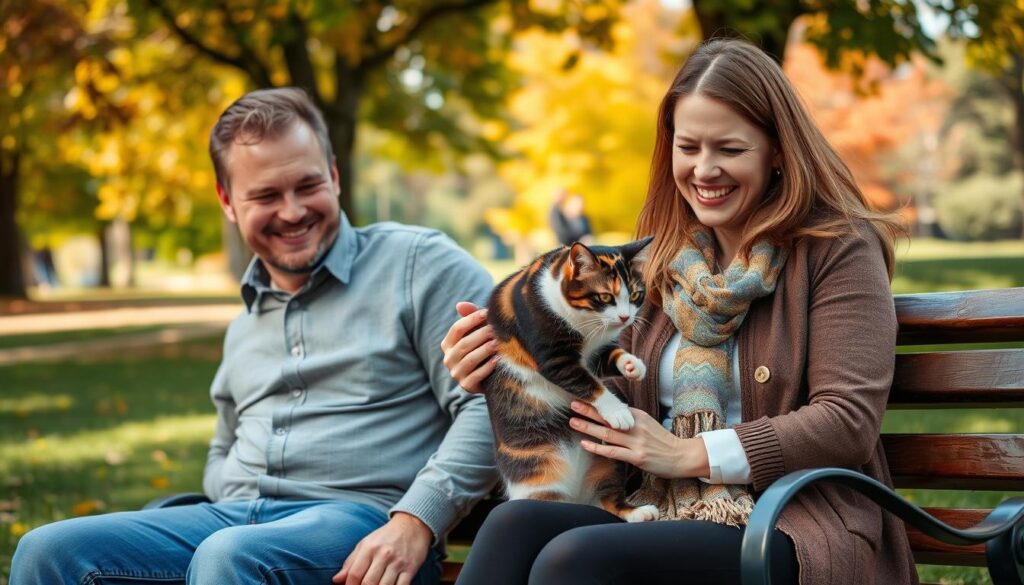
Many people who once swore off cats have had a change of heart, and their stories are a testament to the feline charm. For some, this transformation is a result of experiencing the affectionate side of cats firsthand.
From “I’ll Never Own a Cat” to Multiple Cat Parent
One such story is of a woman who initially vowed never to own a cat. However, after a series of events, she found herself not only owning one but eventually becoming a multiple cat parent. She attributes her change of heart to the unconditional love and companionship her cats provide.
The Reluctant Cat-Sitter Who Became a Convert
Another individual, who was once a staunch cat hater, became a reluctant cat-sitter for a friend. This experience turned out to be a pivotal moment in changing their perspective. They grew to appreciate the unique personalities of cats and eventually became a cat lover.
When a Stray Cat Chooses You and Changes Everything
For some, the turning point comes when a stray cat chooses them. This unexpected companionship can be a powerful catalyst for change, as it was for one person who found that the stray cat’s presence brought a new sense of joy and comfort into their life.
The Allergy Sufferer Who Found Ways to Make It Work
Another challenge faced by some is allergies. One allergy sufferer discovered that with the right precautions and medical support, it was possible to live comfortably with cats. This realization opened the door to experiencing the rewards of cat ownership despite initial health concerns.
These stories highlight the diverse paths people take when shifting their perspective on cats. Whether through direct experience, changed circumstances, or finding solutions to perceived obstacles, former cat foes are discovering the joys of feline companionship.
Conclusion: The Unexpected Joy of Feline Companionship
For people who used to hate cats, the transformation can be remarkable. By giving felines a chance, many have discovered the joy of feline companionship. Research has shown that cats often gravitate towards individuals who offer “passive” attention and “minimal touching.” This gentle approach can help build trust and foster a deeper connection.
As we’ve seen, various factors can contribute to a change of heart, from unexpected encounters with affectionate felines to learning to read and appreciate cat body language. By embracing these experiences, people can develop a profound appreciation for the unique bond that can form between humans and cats.
The stories of those who have made this transition serve as a testament to the power of feline companionship. Whether you’re a former cat skeptic or simply looking to deepen your understanding of these animals, there’s never been a better time to explore the rewards of sharing your life with a cat.
